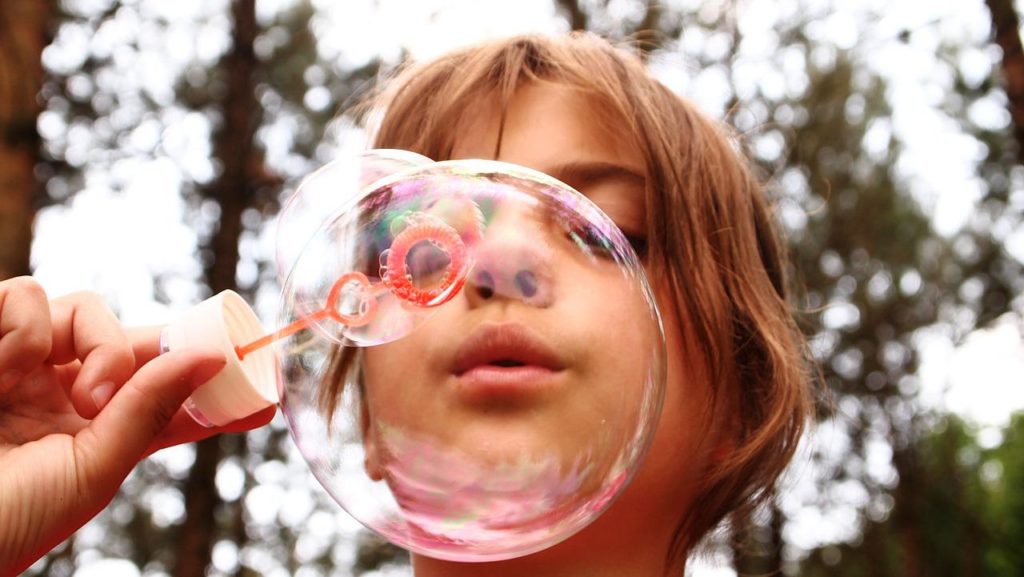
Over a decade ago, when I first started working as a couples’ therapist, I was tormented by my own low desire. Although I didn’t know what to call it yet, I knew something in my evolution as a woman had gone awry. I sensed a kernel of freedom buried in my sexuality, but it seemed like I couldn’t access it or hold onto it in my committed romantic relationships.
What I’ve realized since then is that, for most of my life, I’ve been marinating in what I call the Sexual Chemistry Attraction Myth. The SCAM is an acronym I’ve coined for a constellation of societally-reinforced, limiting beliefs that sap a woman’s energy from her actual, here-and-now relationships. Over time, this collection of beliefs subtly and gradually have women worshiping false idols in their search for erotic vitality.
The SCAM is so pervasive we don’t see it, but there are hints of it everywhere: in perfume advertisements and on magazine covers, in advice columns and song lyrics. It’s that conviction many of us secretly subscribe to, even if we don’t admit it, that some day, when we least expect it, we’ll turn around at a coffee shop just as an attractive stranger raises their eyes. It will happen: we’ll feel a subtle under current of sensation running through our body. It will be him or her: the One. Or one of very few potential Ones. We’ll feel effortless desire.
The Torch-to-Candle Approach

Even as I appeared to be somewhat independent in other areas of my life, I had grown up with the expectation that the right person (in my case, a man) would come to my erotic rescue. He would wake me up to passion. In my marriage, this belief informed my sex life. I expected sexual chemistry to carry and sustain us. We were a good fit in so many important ways. Surely, sooner or later, his desire would fully ignite our sexual connection and my own desire would reliably awaken. It would feed off his, the way a candle can feed off a torch. This torch-to-candle approach worked for awhile, until the metaphorical wax started melting and things got messy.
A year after our wedding, my husband and I weren’t having much sex. Frequency isn’t everything, of course, but the worst part of it was my own desirelessness. My husband felt disconnected from me and I felt a mixture of guilt and anger. He wasn’t holding up what I believed to be his end of the torch-to-candle bargain. It was affecting all areas of our relationship.
Once a week, we skulked out of our emotional corners, circled our two-bedroom apartment, and threw our best conversational sucker punch. It was usually some version of “if-you-really-loved-me-you’d-want-what-I-want.” As I began to see more couples in my practice, I recognized how much our disconnection mirrored the themes and sexual struggles so many couples have. Maybe love and sex were like oil and water—two elements best kept separate? I decided to do my own research, and try to figure out what was going on.
Low Desire is A Cultural Phenomenon

I discovered I wasn’t alone. Estimates vary widely, but a 2018 article by The International Society for the Study of Women’s Sexual Health Process of Care cites a large population-based survey of 50,001 US women (completers, 31,531; 63% response rate; aged 18-102 years) in which low desire was the most common sexual problem. It was reported in 37.7% of respondents and was more common than arousal issues or difficulties with orgasm. In an earlier 2006 study of sexual practices of 1,465 men and women conducted by Bijoux Indiscrets, the results showed that only 6.8% of women feel regular desire. Women in this study also claimed they faked orgasms 42.2% of the time to put an end to a sexual episode, as compared to 19.9% of men.
A casual survey of the married women in your own life—friends, relatives, acquaintances—might suggest an even higher number. Many women won’t admit to low desire or to the impact it has on their sense of self-worth. My own experiences, clinical work, and research revealed a pattern. Low desire wasn’t something that lived inside individual women. It was a phenomenon that emerged most visibly in committed relationships, often as a symptom of the Sexual Chemistry Attraction Myth.
As desire goes M.I.A., some women try couples counseling, or consult with a medical doctor or a psychiatrist. Some women explore sexuality workshops or seek out a sex therapist. Others deny or ignore the sexual issues in their marriage, maintain the status quo, or tell themselves it’s more important to be their spouse’s BFF than their lover. They ignore the problem, drink too much, complain to girlfriends, have an emotional or sexual affair, or turn a blind eye to their spouse’s affair. These avoidance strategies may provide short-term relief, but none will help a woman access her erotic vitality.
The Beginning of Erotic Reset

There’s an up-side to hitting bottom when it comes to feeling low or no desire. When sexual attraction doesn’t follow the cultural script, the Sexual Chemistry Attraction Myth can be exposed for what it is: a hornswoggle. Women who find themselves with limited sexual interest in their partners have the opportunity to recognize something big: they’re out of alignment with an essential aspect of who they are. Once you see this, as a woman, you can begin a process of erotic expansion, working through layers of inherited family and cultural beliefs, through inhibitions and misconceptions about your own and other women’s sexuality.
If you feel low desire, it’s not the end of your love story. It’s the beginning of your Erotic Reset Journey. You can free yourself of the SCAM™ and reverse the toll it’s taken on your sexuality. The despair I experienced in my own marriage over thirteen years ago was the impetus that fueled my commitment to understand my own low desire. Since then, I’ve learned first-hand—through a wide-range of transformational experiences—the truth about women’s desire. I’ll continue to share details about what I’ve learned with you here on my blog and in my newsletter (sign up here if you haven’t already!), and to show you how to reverse the impact of the Sexual Chemistry Attraction Myth in your sex life.







